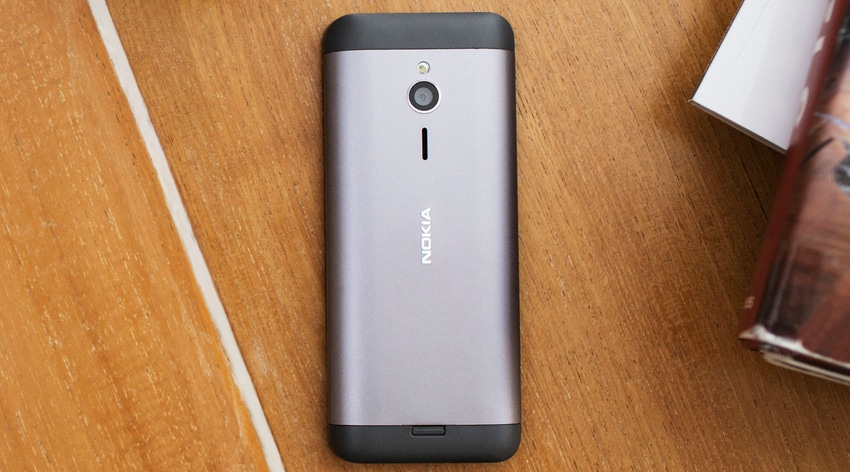HMD Global, a company formed from the ashes of Nokia and Microsoft’s handset divisions, has announced deals with the two companies to make and sell Nokia-branded mobile handsets.
May 18, 2016

HMD Global, a company formed from the ashes of Nokia and Microsoft’s handset divisions, has announced deals with the two companies to make and sell Nokia-branded mobile handsets.
In a flurry of announcements today HMD announced its creation, Microsoft announced it was selling its feature phone business, which it acquired from Nokia, to HMD and Foxconn subsidiary FIH Mobile, for $350 million, and Nokia announced a ‘strategic brand licensing agreement’ with HMD, allowing it to make and sell Nokia-branded handsets and tablets for the next ten years.
The CEO of HMD is Arto Nummela, who is currently Microsoft’s mobile devices VP for the APAC, Middle East and Africa regions. Nummela came over to Microsoft with the Nokia devices division acquisition and was a Nokia lifer, having previously been SVP of Sales and Marketing in India, Middle East and Africa and, prior to that, VP of Nokia’s smartphone business in the Americas.
The only other publicly named HMD exec is Florian Seiche, who is currently Eurpean Sales and Marketing SVP for Microsoft Mobile, having joined Nokia in the same capacity in the middle of 2013. Seiche’s main claim to fame, however, is the eight years he spent as HTC’s EMEA President, which encompassed the company’s move from ODM to major smartphone brand.
So it would be fair to say the two of them have a fair bit of experience of the rollercoaster ride the handset business has experienced over the past decade and, in effect, this seems like a management buyout of the Microsoft feature phone business. HMD is partly owned by its management and partly by private equity fund Smart Connect, which is run by former Nokia SVP of Sourcing and Procurement Jean-Francois Baril.
“We will be completely focused on creating a unified range of Nokia-branded mobile phones and tablets, which we know will resonate with consumers,” said Nummela. “Branding has become a critical differentiator in mobile phones, which is why our business model is centered on the unique asset of the Nokia brand, and our extensive experience in sales and marketing. We will work with world class manufacturing and distribution providers to move quickly and deliver what customers want.”
“Today marks the beginning of an exciting new chapter for the Nokia brand in an industry where Nokia remains a truly iconic name,” said Ramzi Haidamus, president of Nokia Technologies – the company’s IP licensing division. “Instead of Nokia returning to manufacturing mobile phones itself, HMD plans to produce mobile phones and tablets that can leverage and grow the value of the Nokia brand in global markets. Working with HMD and FIH will let us participate in one of the largest consumer electronics markets in the world while staying true to our licensing business model.”
“We are looking forward to fostering a strong and long-term collaboration with HMD global and Nokia,” said Vincent Tong, Chairman of FIH, which will be taking over Microsoft’s Vietnamese handset manufacturing facility. “We are impressed by the experience and expertise of the HMD management team and are committed to supporting them with our manufacturing, technology and supply chain capabilities, to capture market opportunities together in the future.”
The word ‘smartphone’ seems to have been deliberately avoided in this announcement, presumably because Microsoft is still officially in the smartphone game with its Lumia-branded devices. However this probably marks the final chapter in Microsoft’s calamitous foray into mobile devices via the Nokia acquisition. It took just over a year for Microsoft to write-off the entire purchase and Microsoft has shown little interest in throwing good money after bad with the Lumia range, which is currently very much on the back-burner.
While smartphones will presumably be on the roadmap for HMD it seems likely the immediate focus will be entry-level feature phones for developing markets. That part of the Nokia acquisition always looked like a bad fit for Microsoft, which seemed interested only in providing a boost to Windows Phone at the time, and which had comically failed with the basic Kin handset a few years previously.
The HMD management team seems to be especially experienced in developing markets, which were also the last ones to bail on Nokia post iPhone and Android and which continued to buy Nokia’s feature phones in large numbers until its final day. While Nokia famously missed the smartphone revolution its strength was always in making reliable, attractive, good-value feature phones. HMD seems to be betting there’s still a market for such products, but with Android handsets now so cheap that window seems small.
About the Author(s)
You May Also Like








.png?width=300&auto=webp&quality=80&disable=upscale)


_1.jpg?width=300&auto=webp&quality=80&disable=upscale)


.png?width=800&auto=webp&quality=80&disable=upscale)